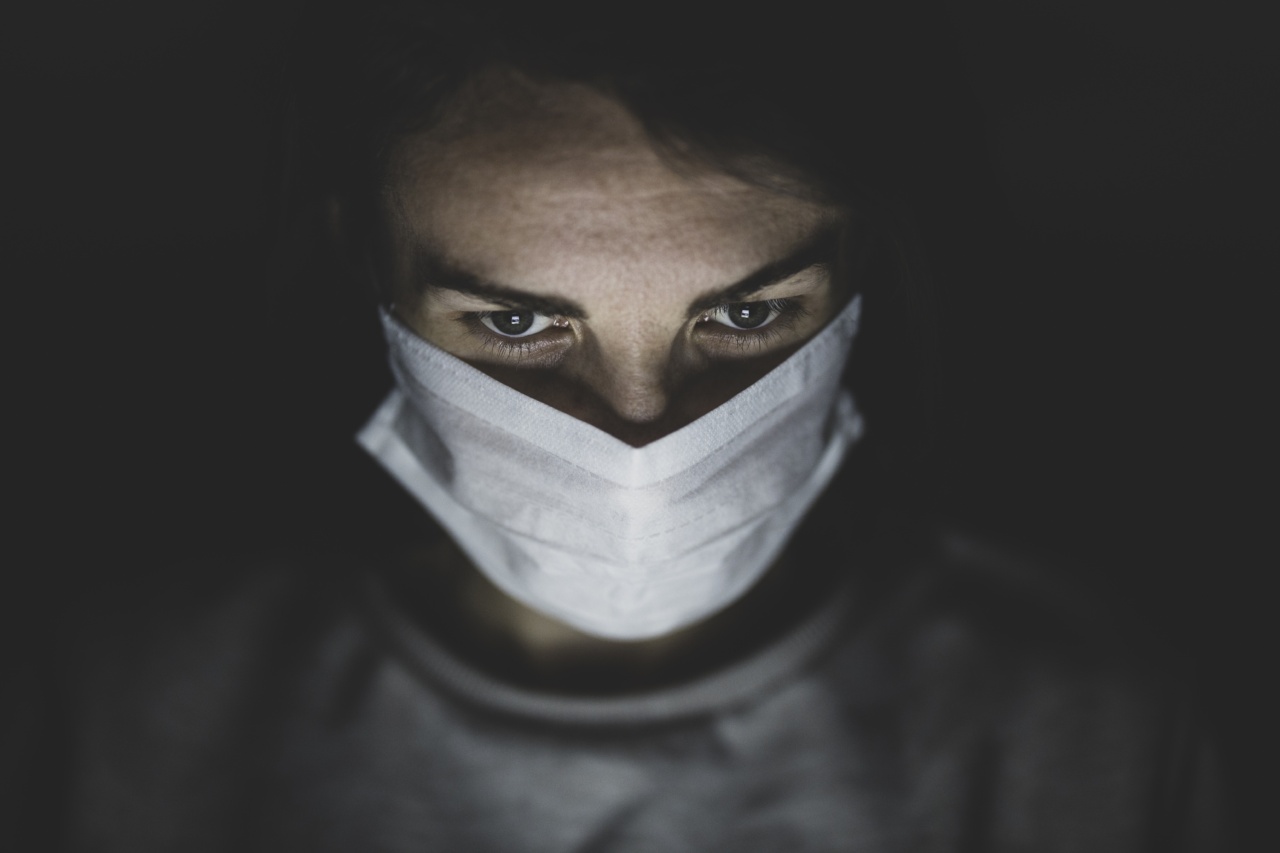Bulimia nervosa, commonly referred to as bulimia, is an eating disorder characterized by recurring episodes of binge eating followed by compensatory behaviors such as vomiting, excessive exercise, or the use of laxatives.
This serious mental health condition can have severe physical and psychological consequences if left untreated. In this article, we will explore the symptoms of bulimia and the various treatments available for individuals struggling with this disorder.
Symptoms of Bulimia
Bulimia can affect people of all ages, genders, and backgrounds. While the symptoms may vary from person to person, the following signs may indicate the presence of bulimia:.
1. Binge Eating
Individuals with bulimia often consume large amounts of food in a short period, feeling a loss of control during these episodes.
Binge eating is typically followed by feelings of guilt, shame, and a strong desire to compensate for the excessive food intake.
2. Purging
Purging behaviors are common in bulimia, as individuals attempt to rid their bodies of the calories consumed during a binge episode.
This may involve self-induced vomiting, misuse of laxatives, or engaging in excessive exercise to burn off the excess calories.
3. Weight Fluctuations
People with bulimia often experience frequent fluctuations in weight. These can occur rapidly due to the cycles of bingeing and purging.
However, some individuals with bulimia may maintain a normal weight or even be overweight, making the disorder less noticeable to others.
4. Dental Issues
The stomach acid from frequent vomiting can erode tooth enamel, leading to tooth decay, sensitivity, and discoloration. Some individuals with bulimia may also develop swollen salivary glands, resulting in a puffy or round-faced appearance.
5. Gastrointestinal Problems
Repeated purging can cause various gastrointestinal issues, including acid reflux, stomach ulcers, and bloating. Over time, these problems may worsen and impact the overall digestive system, leading to more serious complications.
6. Mood Changes
Bulimia can have a significant impact on an individual’s emotional well-being. Mood swings, depression, anxiety, and feelings of self-hatred are common among those with bulimia.
The constant preoccupation with body weight and shape also contributes to low self-esteem and a distorted body image.
7. Physical Exhaustion
The intense exercise or excessive physical activity associated with compensatory behaviors can leave individuals feeling weak, fatigued, and physically exhausted. This exhaustion further fuels the negative emotional effects of bulimia.
8. Social Withdrawal
Many individuals with bulimia tend to isolate themselves and withdraw from social activities.
The secrecy surrounding their eating disorder often leads to feelings of shame and embarrassment, making it difficult to maintain healthy relationships with friends and family.
9. Hair and Skin Problems
The lack of essential nutrients due to binging and purging can result in dry, brittle hair, hair loss, and dry skin.
The body’s inability to obtain adequate vitamins and minerals through the digestive process affects the appearance and health of hair and skin.
10. Menstrual Irregularities
Bulimia can disrupt a woman’s menstrual cycle, leading to irregular or absent periods. This occurs due to hormonal imbalances caused by insufficient nutrition, extreme weight fluctuations, and excessive exercise.
Treatments for Bulimia
Fortunately, there are effective treatments available for individuals struggling with bulimia. Treatment plans often involve a combination of therapies and interventions tailored to meet the specific needs of the individual.
Here are some common treatment approaches:.
1. Psychotherapy
Psychotherapy, particularly cognitive-behavioral therapy (CBT), is a widely recommended treatment for bulimia. CBT helps individuals identify and change their unhealthy thoughts, beliefs, and behaviors related to food and body image.
This form of therapy also addresses the emotional factors behind the disorder.
2. Nutritional Counseling
A registered dietitian can play a crucial role in the comprehensive treatment of bulimia.
Nutritional counseling helps individuals establish structured eating patterns, develop a healthy relationship with food, and learn about proper nutrition to restore their physical health.
3. Medication
In some cases, medication may be prescribed as part of the treatment plan for bulimia.
Antidepressants, such as selective serotonin reuptake inhibitors (SSRIs), can help reduce the frequency of binge eating episodes and alleviate associated symptoms of depression or anxiety.
4. Support Groups
Participating in support groups, either in-person or online, can provide individuals with bulimia a sense of community and understanding. Connecting with others who have gone through similar experiences can be extremely beneficial for recovery.
5. Hospitalization
In severe cases where the individual’s physical health is at immediate risk, hospitalization may be necessary.
This allows for a controlled environment where medical professionals can closely monitor the individual’s well-being, provide necessary interventions, and ensure their safety.
6. Family-Based Therapy
Family-based therapy (FBT) is often effective for adolescents with bulimia. It involves the active involvement of the family in treatment, aiming to promote healthier eating patterns, improve communication, and establish a supportive environment.
7. Self-Help Resources
There are numerous self-help books, online resources, and mobile applications available that provide valuable information and techniques to support recovery from bulimia. These resources can be helpful supplements to professional treatment.
8. Dual Diagnosis Treatment
If an individual with bulimia has a co-occurring mental health disorder, such as depression or anxiety, dual diagnosis treatment may be necessary.
This approach addresses both the eating disorder and the underlying mental health condition simultaneously.
9. Holistic Therapies
Some individuals find holistic therapies beneficial in their journey towards recovery. These may include practices such as yoga, meditation, art therapy, and acupuncture.
While not standalone treatments, they can complement traditional therapies and support overall well-being.
10. Aftercare Support
Continued support after the completion of a formal treatment program is crucial to prevent relapse.
Aftercare options may include ongoing therapy sessions, support groups, and regular check-ins with healthcare professionals to ensure long-term recovery and provide any necessary adjustments to the treatment plan.
If you or someone you know is experiencing symptoms of bulimia, it is important to seek professional help as soon as possible. Remember, recovery is possible with the right support and treatment.






























